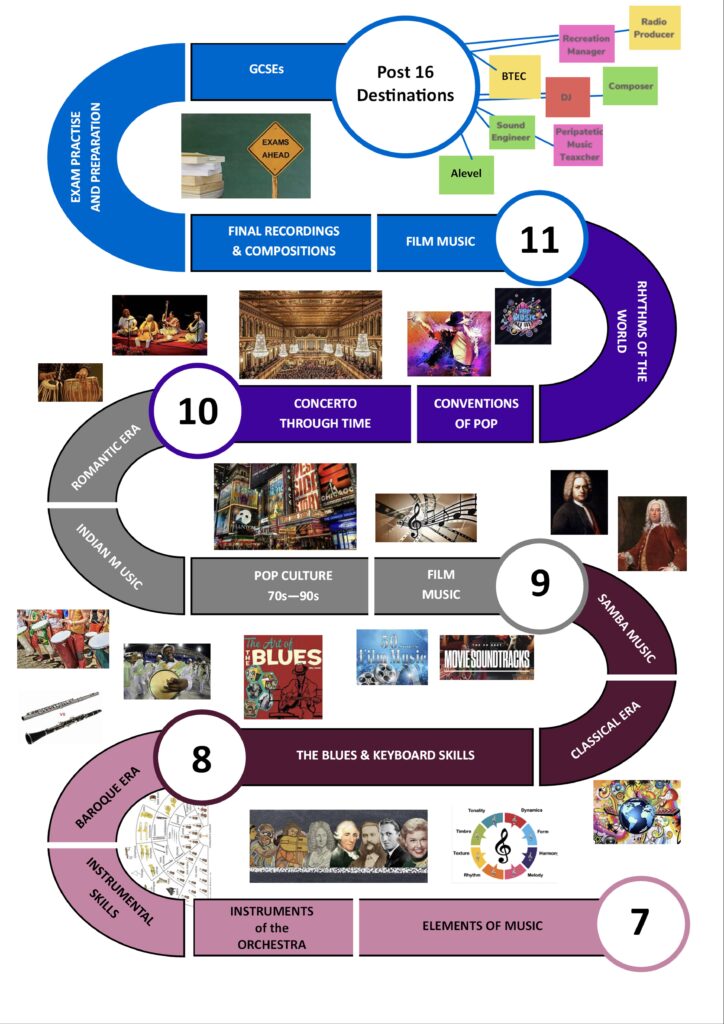Our mission is to develop outstanding musicians. Music education is a key element of a well-rounded curriculum, which every child deserves as part of a comprehensive education. Research proves that those that learn a musical instrument obtain better exam grades across the curriculum. Music enriches every aspect of a student’s development and is a space for self-expression, interaction with peers, and creativity in a nurturing and respectful environment.
This approach enhances empathy, tolerance, cognitive abilities, self-confidence, and self-esteem. Music provides a creative outlet that helps students lead more fulfilling lives as adults. Our music curriculum aims to be both rigorous and inclusive, offering diverse opportunities to students of all skill levels. We aim to embody the school’s catholic values and ethos through our department and our involvement in the school’s spiritual life. We recognise that many of our students start secondary school without prior experience with musical instruments or formal music lessons. Our curriculum is designed to advance students at Key Stage 3, following a structured pathway that progressively builds their knowledge and skills.
Music at Saint Martin’s is available to all students. Given the varied and often limited musical experiences from primary schools, we strive to enrich our students’ lives through deepened classroom learning and extracurricular activities. These include choir, orchestra and performance opportunities throughout the school year. Our Music Department is committed to instilling a lifelong passion for music in every student.
While we aim for students to achieve excellent exam results, our curriculum extends beyond just exam preparation. We offer extracurricular activities for those interested in enhancing their musical skills outside the classroom. Students have access to individual instrumental and vocal lessons, with weekly instruction from specialist teachers. Our department has a range of musical ensembles, providing students with opportunities to collaborate with peers, refine their performance skills, and deepen their appreciation for music. Students participating in extracurricular activities perform in school events such as the Christmas Concert, Carol Service, School Awards Night, School Show, Menphys Carol Service at DeMontfort Hall. This year the school performed MATILDA with 3 different casts. Next year’s show is LEGALLY BLONDE which will be performed at The Abbey Theatre in Nuneaton.
Our Extra curricular offer includes:
- School Choir (7 – 11)
- Caritas Choir (Y8 & 9)
- Area Orchestra (all years)
- School Show (all years)
- School Band (all years)
- School Show (all years)
- Rock Bands (all years)


